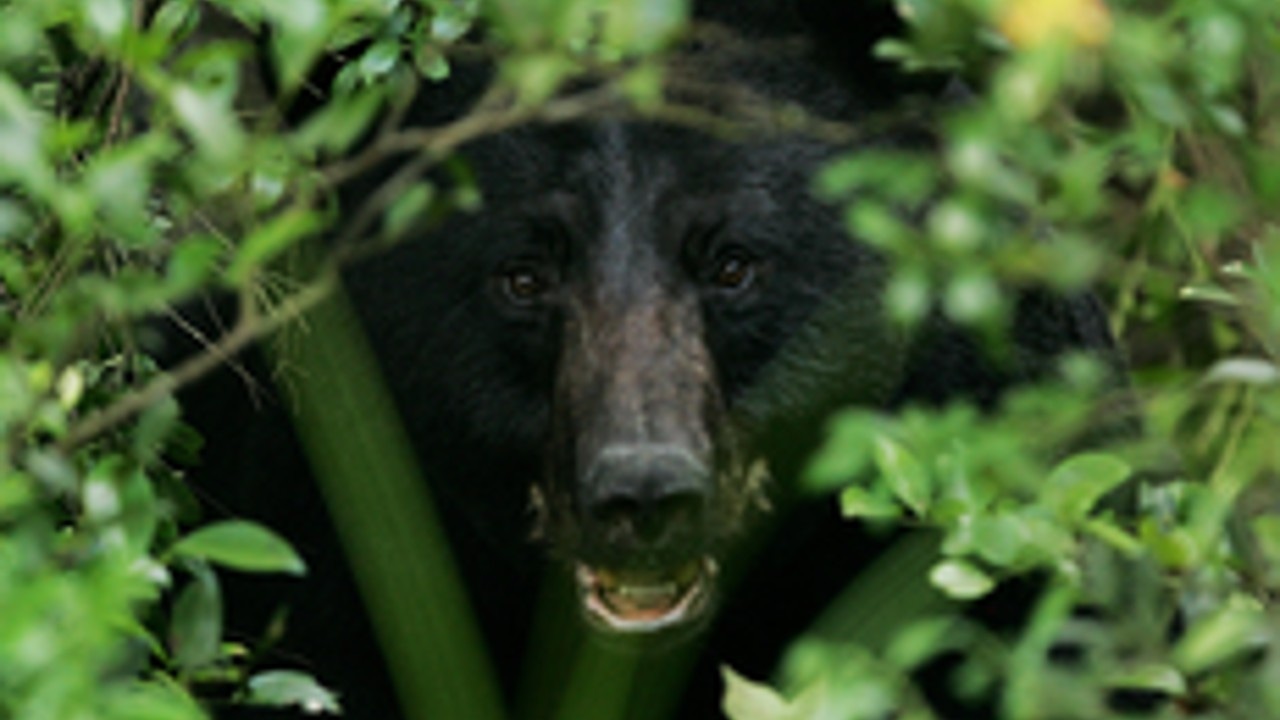Minnesota DNR asking hunters to avoid shooting tagged bears

Black Bear Credit: MN DNR
Black bear hunting is set to begin next month on September 1. However, the Minnesota Department of Natural Resources (DNR) is asking hunters not to shoot bears they are tracking for research.
Called research bears by the DNR, 48 black bears in Minnesota are likely to stand out compared to others by sporting large, colorful ear tags and GPS radio collars.
Most research bears are also equipped with a small, implanted heart monitor under the skin on the left side of the chest.
The tracked bears provide valuable research, according to the DNR, including changes in the bear’s natural food supplies and how it affects their habitat use, physical conditioning, denning, reproduction, and interactions with humans.
“We ask hunters to avoid shooting these valuable research bears,” said Andy Tri, Minnesota DNR bear research scientist. “These collared bears give us much of the data we use in bear management and are most valuable to us when they are collared for multiple years. Thank you to hunters who have opted to not take collared bears in past years and hunters who will choose to not harvest collared bears this season.”
The DNR said it can be difficult to spot the collar on the bear, and acknowledge circumstances can prevent hunters from realizing a bear has been tagged. The DNR asks that hunters take a moment to make sure the bear isn’t being used for research before pulling the trigger.
Due to the difficulty of spotting a research bear, it is legal for hunters to kill one, mistakenly or intentionally. However, the DNR said trapping new bears for research every year to replace ones that have been killed isn’t sustainable for collecting long term data.
Should a hunter kill a research bear, the DNR asks hunters to call their wildlife research office in Grand Rapids at 218-328-8879 or 218-328-8874 to report the kill and schedule a pickup or drop off of the bear’s collar and heart monitor should it have one.